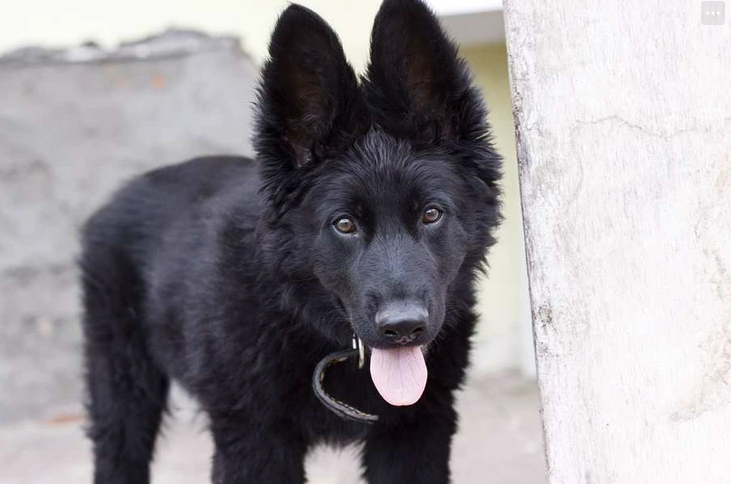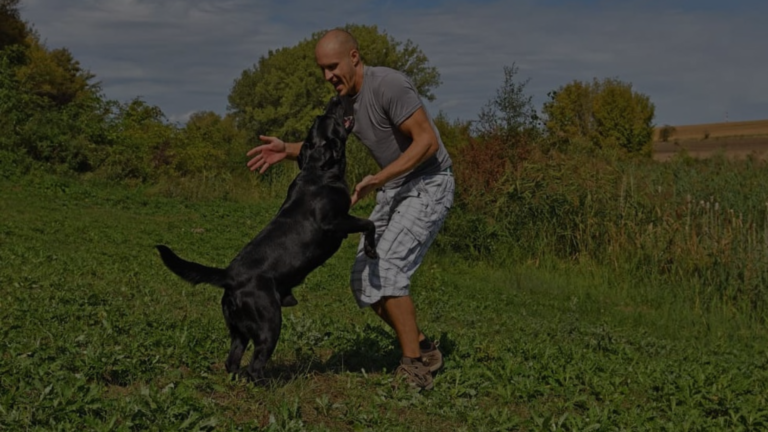Tourette Syndrome (TS) is a neurological disorder characterized by involuntary tics, sudden movements, and sounds. While many associate TS with humans, the question arises: Can a dog have Tourettes? Let’s delve into the science and explore the fascinating world of canine tics and behaviors often mistaken for TS.
Understanding Tourette Syndrome in Humans
Before diving into canine behavior, let’s establish a clear understanding of TS in humans. Characterized by involuntary tics, TS affects roughly 1% of children and adolescents. These tics can be:
- Motor: Twitches, jerking, head shaking
- Vocal: Sniffing, coughing, swearing (coprolalia)

While the exact cause remains unknown, genetics and neurotransmitter imbalances are believed to play a role. TS is not contagious and doesn’t affect intelligence or lifespan.
Can a Dog Have Tourettes?
No, dogs cannot develop Tourette Syndrome. The complex neurological mechanisms underlying TS are specific to humans and not observed in dogs. While dogs may exhibit behaviors resembling tics, these are often due to different underlying causes.
Dogs can display involuntary movements similar to human tics. These can include:
- Head shaking: Often caused by ear infections, allergies, or foreign objects lodged in the ear canal.
- Eye twitching: This can be due to dry eye, irritation, or neurological issues.
- Leg shaking: May indicate excitement, anxiety, or pain.
- Tail chasing: This can be playful behavior or a sign of obsessive-compulsive disorder (OCD) in dogs.

Key Differences Between Canine Tics and Tourettes
- Complexity: Human tics in TS can be complex and purposeful, while canine tics are usually simpler and less varied.
- Suppression: People with TS often have urges to suppress tics, which can be difficult and lead to tension. Dogs don’t exhibit this urge.
- Prevalence: Tics in dogs are less common and often مرتبط with specific underlying medical conditions.
Important Note: If you notice your dog exhibiting unusual movements or behaviors, consult your veterinarian to rule out any underlying medical issues.
Canine Quirks and Misconceptions
While dogs can’t get Tourettes, they display unique behaviors that might be mistaken for tics. These include:
- Zoomies: Short bursts of energetic running, often seen in young dogs.
- Snoring: This can be a sign of sleep apnea or other breathing problems.
- Yawning: This can be a sign of stress, boredom, or simply tiredness.
- Licking: This can be due to allergies, anxiety, or simply a soothing behavior.
It’s crucial to understand the context and consult your veterinarian if these behaviors are excessive, persistent, or accompanied by other symptoms.
Conclusion
While dogs cannot develop Tourette Syndrome, they exhibit fascinating behaviors and quirks that make them special. By understanding the differences between tics in humans and dogs, we can appreciate the unique communication and expression of our furry friends. Remember, if you’re concerned about your dog’s behavior, consult your veterinarian for proper diagnosis and care. Let’s celebrate the amazing diversity and individuality of our canine companions!
Resources & References
- Tourette Association of America: https://tourette.org: https://tourette.org/
- American Kennel Club: https://www.akc.org: https://www.akc.org/
- Veterinary Partner: https://veterinarypartner.vin.com: https://veterinarypartner.vin.com/
- National Institutes of Health: https://www.nih.gov: https://www.nih.gov/
Additional Notes:
- This article is for informational purposes only and should not be substituted for professional veterinary advice.
- Always consult your veterinarian for any concerns about your dog’s health and behavior.
FAQs About Dogs and Tourette Syndrome
My dog twitches his head sometimes. Does he have Tourettes?
While head twitching in dogs can be alarming, it’s highly unlikely to be Tourettes. This symptom usually has other causes like ear infections, allergies, or foreign objects. Consult your veterinarian for a proper diagnosis and treatment plan.
My dog barks and spins repeatedly. Could it be TS?
Repetitive behaviors like barking and spinning are more likely signs of anxiety, OCD, or playfulness in dogs. TS is complex and doesn’t typically manifest in such repetitive patterns. Again, veterinary consultation is crucial for accurate diagnosis.
Can stress trigger tics in dogs like in humans?
Although dogs experience stress and anxiety, these rarely manifest as tic-like movements. If your dog seems stressed, consult a veterinarian or animal behaviorist for strategies to manage their anxiety.
Is there a cure for tics in dogs?
Treatment for tics in dogs depends on the underlying cause. Ear infections may require medication, while OCD might need behavioral therapy. Always follow your veterinarian’s recommendations for your dog’s specific needs.
What are some signs to watch out for that might indicate a problem?
Excessive or persistent tics, changes in behavior, or any accompanying symptoms like lethargy or loss of appetite require immediate veterinary attention. Early diagnosis and intervention are key for optimal outcomes.
How can I help my dog if they have tics?
Focus on addressing the underlying cause diagnosed by your veterinarian. For anxiety-related tics, providing a calm environment and positive reinforcement can be helpful. Always follow professional guidance for the best approach to your dog’s individual needs.







